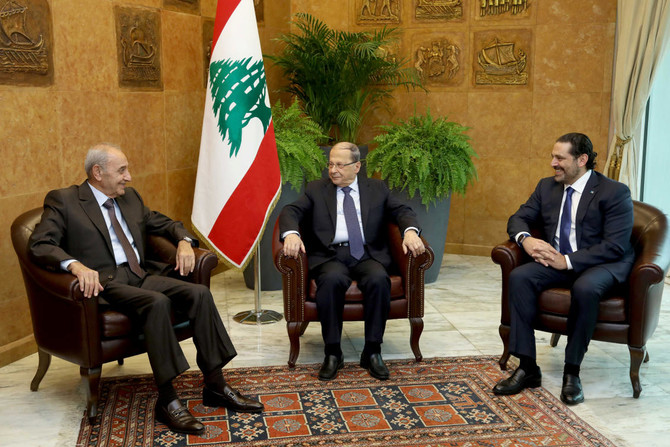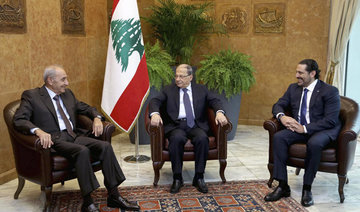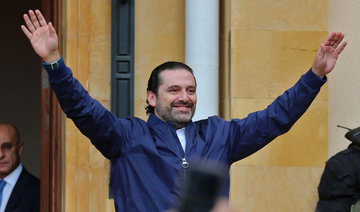BEIRUT: Lebanese Prime Minister Saad Hariri said the Syrian regime, which he blames for his father’s assassination, also wants him killed.
“My life is still in danger, I have a lot of enemies, extremists and the Syrian regime,” he said in an interview published Thursday in French magazine Paris Match.
“The latter has issued a death sentence against me. They accuse me of interfering in their country,” he added.
“I fear that Hezbollah’s interference abroad will end up costing Lebanon dearly. I will not accept that a Lebanese political party participates in maneuvers that serve the interests of Iran,” Hariri said.
“Lebanon can no longer tolerate the interferences of a party like Hezbollah in the affairs of the Gulf countries, where 300,000 Lebanese live. We must not pay for the actions of Hezbollah.”
He cited Iran's “grip” on Lebanon via Hezbollah, and threats to his life, as the causes of his resignation, which he later suspended.
Late Wednesday, Hariri tweeted that matters are moving “positively,” and that he may formally rescind his resignation next week.
President Michel Aoun, Parliament Speaker Nabih Berri and Hariri have given assurances that there will be a political breakthrough next week that will put an end to the crisis.
In an interview with Italian newspaper La Stampa during his official visit to Italy, Aoun said: “The crisis is behind us now, and Hariri will carry on the leadership path in Lebanon.”
Berri was quoted as saying: “We are determined to maintain the unity and stability that we saw lately, and the Cabinet sessions will probably resume after the president’s return.”
Hariri said: “Things are positive. If they remain positive next week, I will announce with President Aoun and Speaker Berri good news to the Lebanese people.”
Former Prime Minister Tammam Salam told the Middle East News Agency (MENA): “Aoun and Berri succeeded in managing the political crisis that followed Hariri’s resignation. We hope that the success will continue with the political parties’ agreement on the policy of dissociation from regional conflicts.”
Salam expressed hope that “a new agreement would be reached during the next few days, actions will be taken instead of words, and each party will carry out its responsibilities to avoid putting Lebanon and the Lebanese in danger.”
He said: “Nobody wants to drag Lebanon and the Lebanese people into regional problems that would harm Lebanon.”
He added: “Lebanon should not be a platform to create problems or enemies with any state, especially with the Arab brotherly states.”
Salam said: “I hope that the day will come when Lebanon will stop being part or having a role in matters outside its borders...
“I also hope that the day will come when Lebanon will be involved in Lebanese matters only, and that it will take care only of its own people, and not other matters and other people.”
























